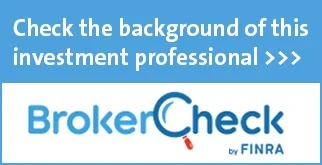Retirement Planning and Health Reimbursement Accounts
Have you wondered if your employer’s HRA (Health Reimbursement Account or Arrangement) would be a good option for your retirement planning? HRAs offer value to all stakeholders — here’s how.
What You Need to Know About HRAs and Retirement Planning
 HRAs are employer-owned funds that reimburse employees and retirees for medical expenses not covered by their health insurance. These expenses include co-pays and out-of-pocket medical bills that don’t meet the deductible level. HRAs have a set ceiling for how much reimbursement you can use during each calendar year. However, if you use less than your maximum allotment, the remainder rolls over into the following year.
HRAs are employer-owned funds that reimburse employees and retirees for medical expenses not covered by their health insurance. These expenses include co-pays and out-of-pocket medical bills that don’t meet the deductible level. HRAs have a set ceiling for how much reimbursement you can use during each calendar year. However, if you use less than your maximum allotment, the remainder rolls over into the following year.
Tax Benefits of HRAs
Tax-wise, HRAs offer a win-win scenario for both you and your employer. Employers like HRAs because, even though the funds they add to those accounts will eventually be paid to employees, the employer will never have to pay FICA taxes (Social Security and Medicare) on those funds. Employees also enjoy freedom from taxes: When the HRA reimburses you for a medical expense, you don’t have to treat that money as income, and you don’t owe any tax on it.
How Do HRAs Help With Retirement Planning?
With HRAs, you may be able to free up more of your current funds by lowering the level of your health insurance premiums and using the remaining money for retirement planning. Access to an HRA means that you can choose a high-deductible, lower-cost health insurance policy and still have help paying for ordinary health care expenses. The money that you save by choosing a lower-cost health insurance policy can be directed into a retirement account, where it may earn interest. It is important to note that HRAs must be used with employment-based health coverage; they are not available to people who purchase their own individual health insurance policies through the Affordable Care Act marketplace.
Retiree-Only HRAs
You might have seen the phrase “retiree-only HRAs” and wondered if they could be beneficial to you. In general, the answer to this is, “Probably not.” Many of these plans are grandfathered into the current Affordable Care Act. There are currently certain HRAs that cover a company’s retirees prior to their qualifying for Medicare, but the laws are complex and may well change again in the next few years.
Retirement planning is aimed at helping you make the right financial choices during each phase of your life. HRAs are a useful tool that can increase your spending power during your working years, allowing you to set more of your income aside for future needs.
Get A Quote




